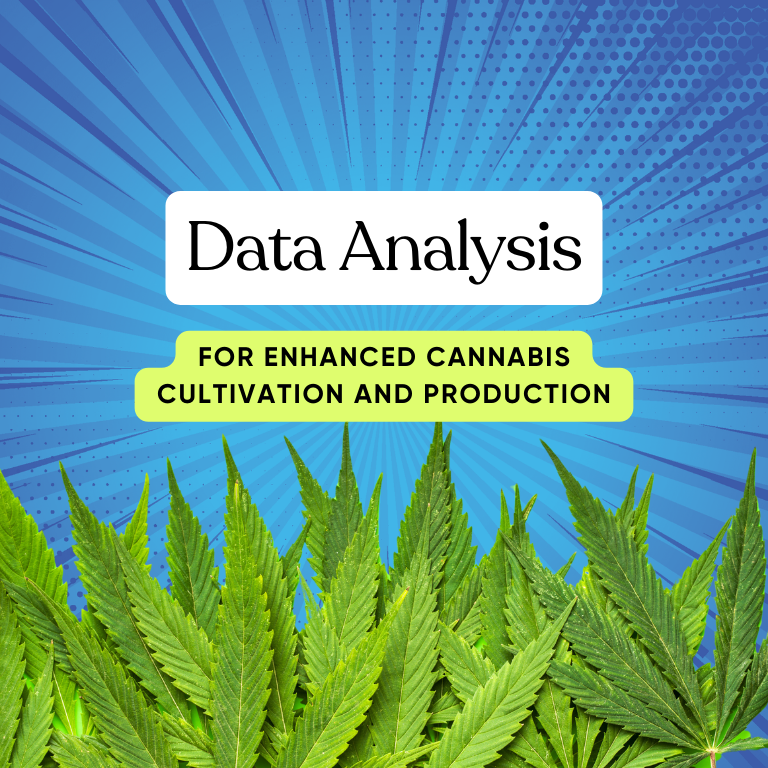Enhancing Cannabis Production with Data Analytics

In recent years, the cannabis industry has seen explosive growth, driven by the increasing legalization and acceptance of both medicinal and recreational cannabis. To stay competitive in this rapidly evolving market, cannabis producers must leverage cutting-edge technologies. One such technology is data analytics, which can significantly optimize various aspects of cannabis cultivation and production. From monitoring growth conditions to enhancing supply chain management, data analytics provides actionable insights that can lead to improved yields, higher quality products, and more efficient operations.
Understanding Data Analytics in Cannabis Cultivation
Data analytics involves the collection, processing, and analysis of data to uncover patterns and insights. In cannabis cultivation, this means using sensors, software, and analytical tools to monitor and optimize every stage of the growing process. By systematically analyzing data, growers can make informed decisions that enhance plant health, maximize yield, and improve overall operational efficiency.
Optimizing Growth Conditions
One of the primary applications of data analytics in cannabis cultivation is optimizing growth conditions. This involves monitoring various environmental factors such as temperature, humidity, light, and CO2 levels. Advanced sensors placed throughout cultivation facilities collect real-time data on these parameters, which is then analyzed to determine the optimal conditions for cannabis growth.
For instance, by analyzing temperature and humidity data, growers can adjust their climate control systems to maintain the ideal environment for different stages of plant development. Data analytics can also help optimize lighting schedules, ensuring that plants receive the right amount and spectrum of light at each growth phase. This precise control over growth conditions leads to healthier plants and higher yields.
Nutrient Management and Soil Health
Data analytics plays a crucial role in nutrient management and soil health. By continuously monitoring soil conditions and nutrient levels, growers can ensure that plants receive the right balance of nutrients. This is particularly important in cannabis cultivation, where nutrient requirements can vary significantly between different strains and growth stages.
Advanced analytical tools can process soil data and provide recommendations on nutrient adjustments. This not only prevents over- or under-fertilization but also helps in maintaining soil health over time. Healthier soil leads to stronger, more resilient plants, which in turn results in better yields and higher-quality cannabis.
Pest and Disease Management
Pests and diseases can devastate cannabis crops, leading to significant financial losses. Data analytics can help in early detection and management of these threats. By analyzing data from sensors and imaging devices, growers can identify patterns that indicate the presence of pests or diseases.
For example, changes in leaf color, growth rates, or other physiological indicators can signal an issue. Data analytics can quickly process this information, alerting growers to potential problems before they become widespread. This enables timely intervention, reducing the reliance on chemical pesticides and improving the overall health of the crop.
Optimizing Water Usage
Water is a critical resource in cannabis cultivation, and efficient water management is essential for sustainability. Data analytics helps optimize water usage by monitoring soil moisture levels and plant water needs. Smart irrigation systems can use this data to apply the right amount of water at the right time, minimizing waste and ensuring plants receive adequate hydration.
By analyzing historical and real-time data, growers can also identify trends in water usage and make adjustments to improve efficiency. This not only conserves water but also reduces costs and supports sustainable cultivation practices.
Enhancing Supply Chain Management
Beyond the cultivation phase, data analytics is invaluable in optimizing supply chain management. From harvest to distribution, every step in the cannabis production process can benefit from data-driven insights.
Inventory Management
Data analytics can streamline inventory management by providing accurate forecasts of supply and demand. By analyzing sales data, market trends, and production schedules, growers can predict future demand and adjust their production plans accordingly. This helps in maintaining optimal inventory levels, reducing the risk of overproduction or stockouts.
Quality Control
Maintaining consistent quality is crucial in the cannabis industry. Data analytics can support quality control by monitoring various factors that affect product quality. For instance, data from cultivation, processing, and packaging stages can be analyzed to identify any deviations from quality standards. This enables prompt corrective actions, ensuring that the final product meets regulatory requirements and customer expectations.
Distribution and Logistics
Efficient distribution and logistics are essential for timely delivery of cannabis products. Data analytics can optimize these processes by analyzing transportation data, route efficiency, and delivery schedules. By identifying the most efficient routes and reducing delays, growers can ensure that their products reach consumers in the best possible condition.
Compliance and Regulatory Adherence
The cannabis industry is heavily regulated, with strict requirements for traceability and compliance. Data analytics simplifies compliance by providing detailed records of every stage of production. From seed to sale, every transaction can be tracked and recorded, ensuring full traceability.
Analytical tools can also help in maintaining accurate records for regulatory reporting. By automating data collection and analysis, growers can reduce the administrative burden and ensure that they meet all regulatory requirements.
The Future of Cannabis Cultivation with Data Analytics
As the cannabis industry continues to grow, the role of data analytics will become increasingly important. Advances in technology will lead to more sophisticated analytical tools, enabling even greater optimization of cultivation and production processes.
Future developments may include the integration of artificial intelligence and machine learning, which can provide even deeper insights and predictive capabilities. For example, AI-powered analytics could predict plant health issues before they occur, allowing for proactive measures to prevent crop losses.
Data analytics is revolutionizing cannabis cultivation and production, offering growers the tools they need to optimize growth conditions, manage resources efficiently, and ensure product quality. By leveraging data-driven insights, cannabis producers can enhance their operations, improve yields, and stay competitive in a rapidly evolving market. The future of cannabis cultivation lies in the intelligent use of data, paving the way for more sustainable and profitable production practices.











